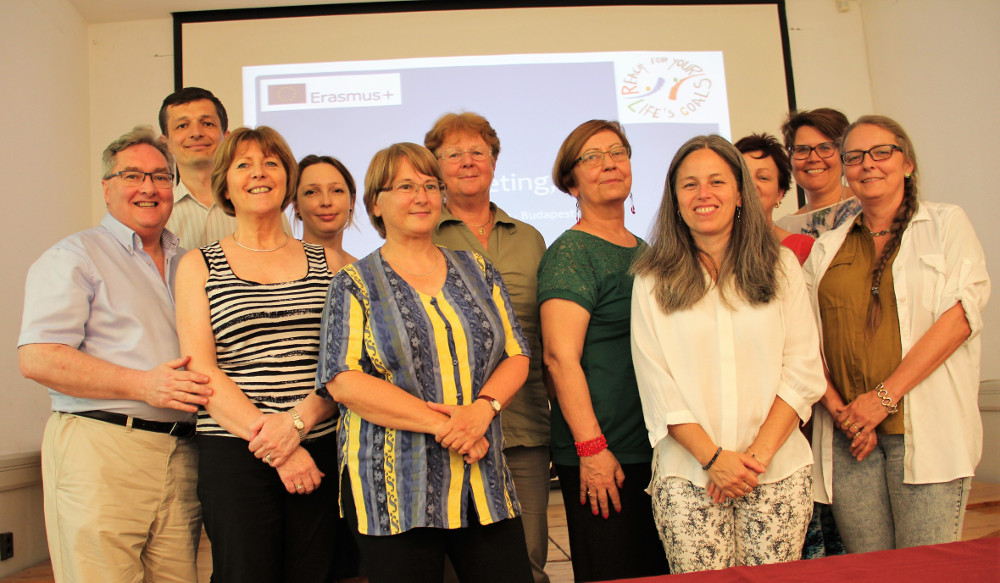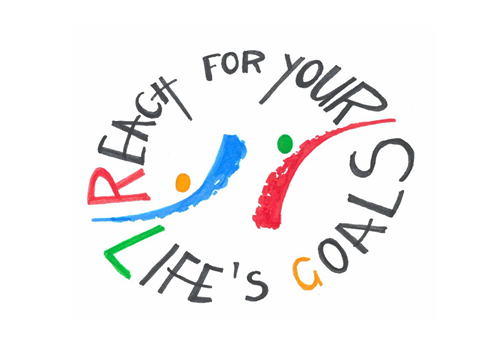July 2017, Budapest
The partners held their last meeting on 4th and 5th of July in Budapest. The two day meeting was hosted by the event centre of Pasarét Franciscan Foundation.
Joint work has started with presenting reviews to cover the period since the last personal meeting of the partners. As it turned out, the Hungarian, Scottish and German sides managed to involve more young people into the testing process than originally planned. The participants taken as a whole incorporated a wide variety of groups which concluded the idea that the activities could be utilized in wide circles.
The central issue of the reviews referred to the career routes of the participants after having finished test courses. It was easier to follow the way of life of those young people who had joined the programme during the final period of their institutional schooling. The majority of young people have preferred specific forms of learning: some of them continued their studies at universities, the majority have nevertheless chosen the option of learning a trade. A great number of them have however voted for being employed. As contrasted with the initial presumptions of developers, none of the young people have practically started an enterprise of their own. The partners shared their ideas about the most efficient ways of keeping contact with young people. Based on their experiences, they have also added a few fresh components to complete the material of Follow up Guide.
Dissemination and sustainability formed other essential themes. Hungarian partners talked about their success to disseminate their programme to a number of various organizations. They have made an agreement with a church organization of national scope running a few vocational schools. The institutions involved in the testing period also want to use the programme in the future. Polish partners have preferred teachers’ further education programmes focusing on teaching entrepreneurial knowledge and skills. They are convinced of the efficacy of influencing young people by sharing teachers’ methodological competency. Scottish partners started cooperating with a number of organizations in order to disseminate the programme. A local further education college seems to be among the future users. Partnership with Scotland’s enterprising schools makes also an important result which enable individual institutions and organizations to freely use the RLG programme. German partners will adapt RLG materials into their institutional practice in a natural way.
The partners have reflected to the chapters of the familiar project results of the last phase of elaboration. They have made a decision to amend Trainers’ manual with a few paragraphs to support the programme in a more flexible way. The description that had been used separately so far, should be turned into an integrant part of the document to support the preparation of the future trainers and observers. They have made a final decision which supplements to integrate into the appendix. The work group has decided – based on professional arguments – to incorporate the self-assessment questionnaire in two versions.
The work group have accepted the readymade chapters of Final study. They discussed the issues still open and agreed to supplement the introduction with sections referring to the labour market and youth unemployment in Europe. They recorded which statistical data to integrate into the document.
The partners discussed the technical dimensions of the issues during the second half of the meeting which made part of the final closing of the project. The Polish, Hungarian and German participants have talked about how far they have gone with text translation. The discussion has made it clear for each partner which documents to add to Final report. They have fixed deadlines and defined the communication forms of cooperation for the future period.
In the end the professional manager of the project has returned thanks the participants for doing their best for joint work. They unanimously emphasized the need to continue the successful cooperation and hoped to have an opportunity to maintain joint work focusing on new topics.





